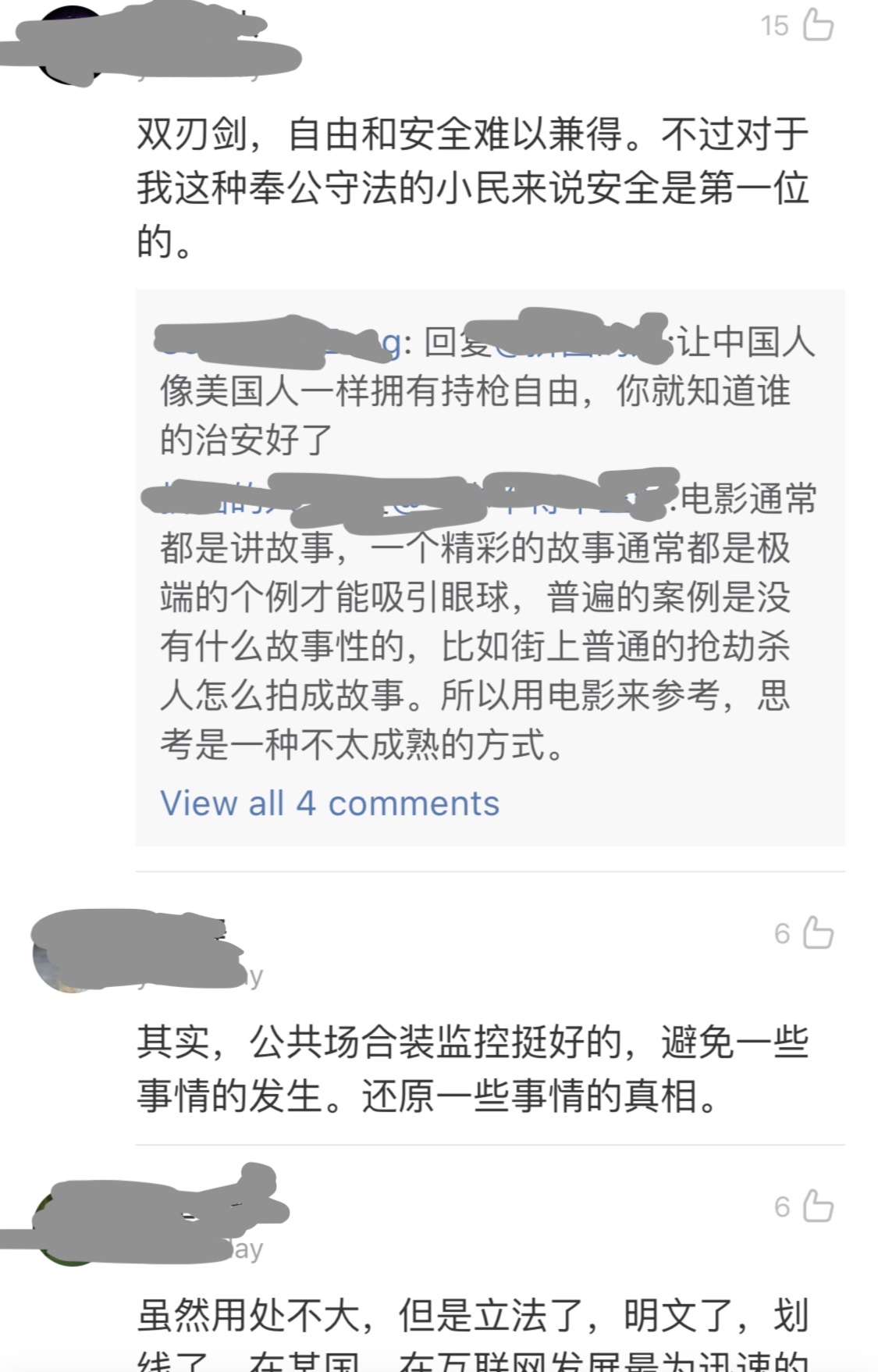This is a translation of my original post in Chinese, written as Google bans Huawei from using some of its services and I am waiting for my neural networks to run. Disclaimer: I don’t support either of these two companies.
In the past two years, the fact becomes more clear to me that data-driven dystopian societies either have been existing for a while (the U.S.) or is coming into shape (China). What an individual can do about this is very limited. Since we could not stop them, it becomes a question how we may live in these societies without abandoning our own values.
Allow me to give out a definition first. I am talking about those scenarios where under the direction from the government or the capitols, some external force (can be the government or corporations) uses phone communication, GPS tracking, online business, browser tracking, facial recognition, etc., to obtain massive amounts of personal data, and uses such data to maintain influence or control over the individuals. Such practice may lead to totalitarian societies like in the book 1984, or societies depicted in Neuromancer or Blade Runner. Because obtaining and using large amounts of data is the key to social control in this situation, I call them “Data Driven Dystopian (or DDD) societies.
I worry about a DDD in China because I see no reason it will not happen, to an extreme degree. With the little legal restrain on data privacy in China, personal data is so easy to obtain, as said in a Robin Li quote “Chinese consumers will exchange privacy for convenience”. The giant corporate groups in China like Alibaba and Tencent deals with all aspects of daily lives including online payment, social media, e-commerce, tourism, insurance, and more, and they have little boundaries in integrating data from these services. For example, the following image shows the branches of the Alibaba corporate group:

Imagine you played a video about Japanese tourism on youku.com, which belongs to Alibaba. The travel website qyer.com will then build “personalized” tours in Japan for you. Additionally, the user portrait they build from your shopping records on taobao.com will be used to predict whether you are backpacking or having a family vacation, and taobao.com will then recommend baby carts to you. This is what Alibaba’s machine learning engineers are working on.
There is also little difficulties in gathering this data for social control. No Chinese companies can refuse an inquiry from the government (to be fair, few U.S. companies can either), and China already has a real-identity based Internet and the Skynet that make things even easier. Meanwhile, Chinese citizens are also more open to this practice. The following screenshot is a top comment on the Chinese social media weibo.com about San Francisco banning facial recognition in public areas, which represents this mindset quite well.

The legitimacy of the Chinese government largely comes from the benefits that it can provide to the people. For the majority of the common citizens, the safety and convenience that the data-driven social control can provide is enough justification for it. With the current Internet censorship, opposing voices will not likely be noticed anyway.
While the Chinese DDD is directed by the government, the U.S. DDD is created by corporates like Google, Amazon, Facebook, etc. Enough has been discussed on the Internet about them; for a start, you can always read about the “what’s bad about…” series by RSM.

The well-known names dealing with this issue probably start with the EFF, the advocate for free softwares, and the anti-tracking browser Tor. (Interestingly, Tor was originally founded, and still largely supported by the U.S. army; but this is another topic.)
The movement for Internet freedom in the U.S. benefits from the activism tradition rooting in the Free Speech Movement, and there has always been revelant researches in the Security area, for example, the hundreds of papers on possible attacks on Tor. Security researches come hand-in-hand with surveillance, though, and this is not a simple story.
The important thing here is that it is extremely difficult to resist the DDD by abandoning services from these companies — even more difficult than you imagined. Not long ago, journalist Kashmir Hill experimented blocking the “Big Five” — Google, Facebook, Apple, Amazon, and Microsoft — from her life. Her story about this experiment is a great read. For example, blocking Google is not just stop using Google search; you also have to migrate the 8,000 contacts you have in gmail, otherwise you can’t work. Blocking Amazon is also not just stopping your Amazon Prime; you cannot visit websites hosted on AWS, which is over a million.
During a trip to Alaska, I saw a few houses that were really “out there”. Their owners came all the way to the end of the continent, even removing themselves from what little civilization there is on that land. They generate their own electricity and heat (during Alaska’s winter!), and have no Internet or cell phone connection. I guess to really escape the DDD, one have to resort to something like this: to give up her identity and all her connections, and become a total outsider of the modern civilization.

A house like this.
I imagine few people are willing to do this; a somewhat depressing conclusion. In the DDD society, we cannot resist and we cannot escape. Maybe all we can do is to be a little uncooperative when we passively live as a part of the DDD. The following are some suggestions I learned from various sources and try to practice. Most of them are old, but nevertheless hard to do.
Some of the following is inspired by the article《我所知道关于避秦这件小事》。
-
Use duckduckgo instead of Google search (which is hard; I violated it in this article).
-
Use Firefox. (Advanced: use Tor).
-
Ban Cookies and other tracking stuff when you visit websites.
-
Ban unnecessary authorizations that your phone requests. I guess most people know this.
-
Put on an anti-face recognition makeup when you go out (?).
-
Turn off personalized recommendations if you can.
-
When you buy movies, games, etc., buy physical copies because the platforms can remove digital contents.
-
Similarly, don’t by Kindle ebooks, etc., that the platform can remove from your device.
-
Similarly, save valuable contents you see on websites when you can.
-
Use open-source softwares as much as possible.
-
Choose a proper open-source license to publish your work under.
-
If you have the skills, volunteer for ( ) (insert name of your favorite service/organization).
-
If not, donate to ( ) (insert name of your favorite service/organization).
This is my list so far; it may be updated later.
2019.5.20